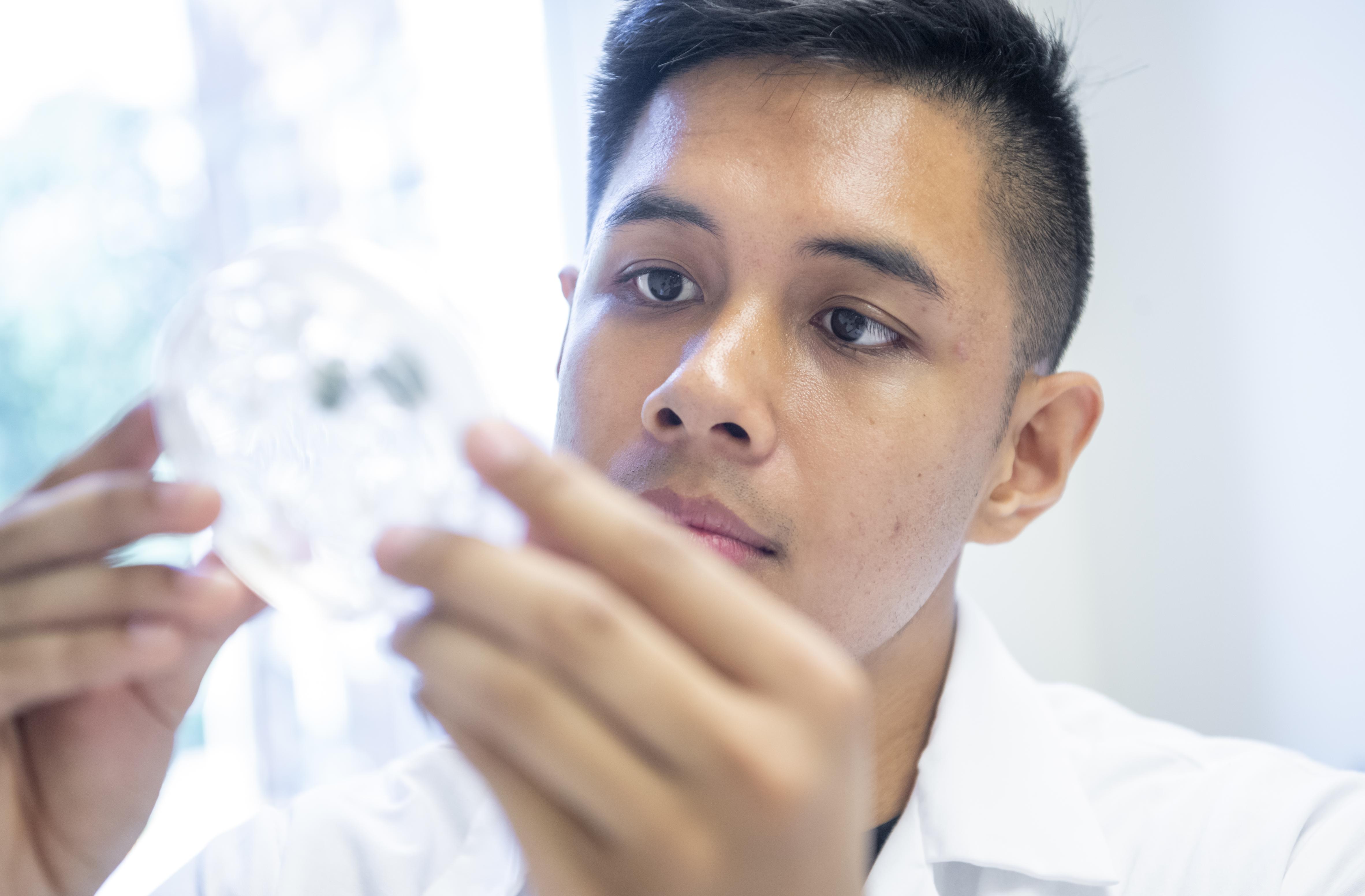Students are required to pass a preliminary examination within five semesters of first enrolling, not including the summer terms, and after substantial completion of the Ph.D. graded coursework requirement.
The preliminary examination is comprised of both an oral and written component and students are expected to defend their Thesis Proposal at the oral component of the examination. Those students on the BA to PhD plan must also pass a Qualifying Exam. An acceptable dissertation is required. Residence requirements are the same as those of the Graduate College.
Choose Your Research Discipline
From bioinformatics to plant breeding, our graduate program offers diverse research areas where you can pursue your interests.

Choose Your Research Discipline
From bioinformatics to plant breeding, our graduate program offers diverse research areas where you can pursue your interests.
Bioinformatics and Biometry
Bioinformatics and Biometry (statistical) research helps researchers obtain valid answers to their questions. They separate biological and physical experimentation from known sources of variation to evaluate and interpret results. Biometry and Bioinformatics are crucial in determining agricultural best practices.
Crop Production
The crop production group investigates and compares standard and alternative crop production practices and systems to evaluate their impact on crop yield, profit, environmental and ecological consequences, and agricultural sustainability.
Environmental Sciences
Environmental Sciences works to understand the impact of agricultural practices on the environment and the impact of the environment on agriculture through air, soil, and water research. We hope to improve agricultural profitability while decreasing adverse effects on the environment locally and internationally.
Horticultural Food Systems
Horticultural food systems research focuses on sustainable agriculture and explores ways to grow crops that are more productive and nutritious while reducing the impact on air, water, and soil quality.
Integrated Pest Management
Integrated pest management (IPM) is the selection and use of pest-control actions to promote favorable economic, ecological, and sociological agriculture outcomes. Scientists use multiple pest-control tactics to provide protection against pest damage and enhance environmental stewardship.
Plant Breeding, Genetics, and Cytogenetics
Plant geneticists apply genetic principles to improve plants for human, animal, and energy use. Research in this area is successful in achieving higher yields, disease resistance, and nutritional quality—all essential components in increasing food security around the world.
Plant Molecular Biology and Physiology
Within plant molecular biology and physiology researchers explore the genetic and molecular basis of important plant traits such as seed composition, disease resistance, stress tolerance, and mineral nutrition. In studying the cellular processes that control these traits, we seek to generate both basic scientific knowledge and new strategies for crop improvement.
Plant Pathology
Plant pathologists study plant pathogens, pests, and how interactions with plants and environments lead to disease susceptibility or resistance. The knowledge produced by plant pathologists about the etiology of plant diseases leads to a better understanding of how to manage plant disease problems. Plant pathology is an integral part of sustainable, environmentally friendly agricultural production systems.
Weed Science
Weed science is a very dynamic field of research integrating cultural, mechanical, chemical, and biological management techniques to obtain economically and environmentally sustainable weed management systems.
Contact Us
AE-106 Turner Hall
1102 S. Goodwin Ave.
Urbana, IL 61801
grad@cropsciences.illinois.edu
